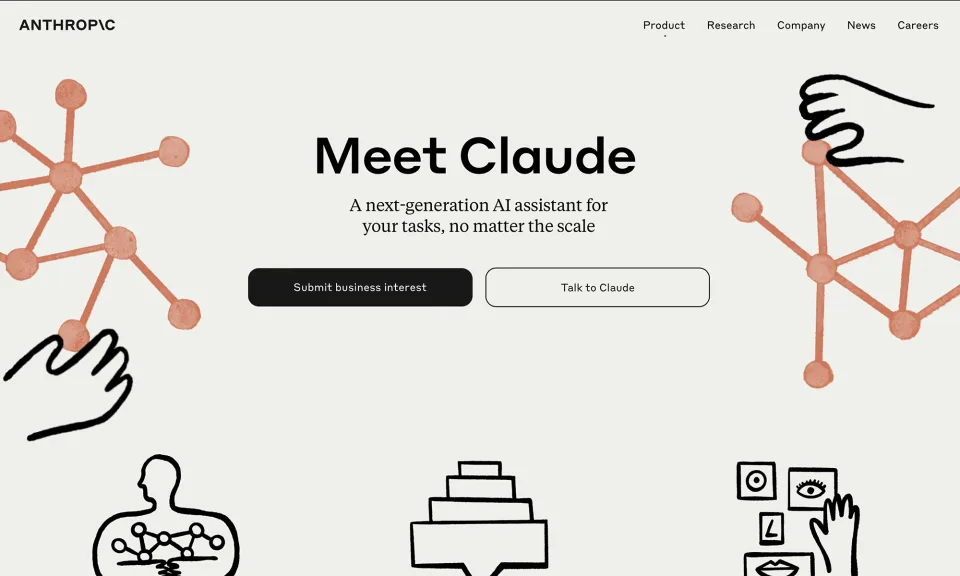Anthropic’s competing AI model, Claude, now has the capability to process and analyze up to 150,000 words in a single prompt.
Today, Anthropic unveiled Claude 2.1, an advanced version of its ChatGPT competitor, featuring a significantly expanded context window of 200,000 tokens. This enhancement enables the AI to analyze texts as lengthy as Homer’s “The Odyssey,” equivalent to approximately 150,000 words or over 500 pages. The context window refers to the maximum amount of text the AI can interpret in a single request.
The release of Claude 2.1, which remarkably coincides with OpenAI’s current turmoil, marks a significant leap in AI capabilities. With its expanded token limit, users can now input vast amounts of text, including whole codebases, lengthy academic papers, and extensive financial reports, allowing Claude to offer detailed summaries, answer specific queries, and even identify patterns that might elude human analysis.
The company’s announcement highlights the complexity and pioneering nature of processing 200,000 tokens, a first in the industry. Although analyzing such long inputs might take minutes—longer than the usual response time for shorter queries—the company expects latency to reduce as the technology evolves.
Claude 2.1 also promises a reduction in hallucination rates—instances of confidently incorrect information—by half compared to its predecessor, Claude 2.0. This improvement is partly due to better distinguishing between wrong assertions and admissions of uncertainty, making the AI more likely to confess ignorance than provide incorrect answers.
Additionally, the update brings enhanced accuracy in processing extensive documents, with a 30% reduction in errors and a significantly lower rate of falsely affirming a document’s support for a specific claim.
Developers gain specific benefits from Claude 2.1 as well. A new Workbench console offers a playground-like environment for refining prompts and accessing model settings to fine-tune Claude’s responses. Users can experiment with multiple prompts and delve into Claude’s codebase for SDK snippet generation. Another beta feature, “tool use,” enables Claude to integrate with existing processes, products, and APIs, such as performing complex calculations, translating plain language into structured API calls, or connecting to private APIs and product datasets. While still in early development, this feature holds promise for enhanced utility and customization.
As Claude 2.1 steps into the spotlight amid the challenges faced by OpenAI, it represents a significant milestone in the evolution of AI chatbots, combining expansive analytical capabilities with reduced error rates and improved developer tools.
The post Anthropic’s competing AI model, Claude, now has the capability to process and analyze up to 150,000 words in a single prompt. appeared first on GagsHub.
http://dlvr.it/SzMkyw
The release of Claude 2.1, which remarkably coincides with OpenAI’s current turmoil, marks a significant leap in AI capabilities. With its expanded token limit, users can now input vast amounts of text, including whole codebases, lengthy academic papers, and extensive financial reports, allowing Claude to offer detailed summaries, answer specific queries, and even identify patterns that might elude human analysis.
The company’s announcement highlights the complexity and pioneering nature of processing 200,000 tokens, a first in the industry. Although analyzing such long inputs might take minutes—longer than the usual response time for shorter queries—the company expects latency to reduce as the technology evolves.
Claude 2.1 also promises a reduction in hallucination rates—instances of confidently incorrect information—by half compared to its predecessor, Claude 2.0. This improvement is partly due to better distinguishing between wrong assertions and admissions of uncertainty, making the AI more likely to confess ignorance than provide incorrect answers.
Additionally, the update brings enhanced accuracy in processing extensive documents, with a 30% reduction in errors and a significantly lower rate of falsely affirming a document’s support for a specific claim.
Developers gain specific benefits from Claude 2.1 as well. A new Workbench console offers a playground-like environment for refining prompts and accessing model settings to fine-tune Claude’s responses. Users can experiment with multiple prompts and delve into Claude’s codebase for SDK snippet generation. Another beta feature, “tool use,” enables Claude to integrate with existing processes, products, and APIs, such as performing complex calculations, translating plain language into structured API calls, or connecting to private APIs and product datasets. While still in early development, this feature holds promise for enhanced utility and customization.
As Claude 2.1 steps into the spotlight amid the challenges faced by OpenAI, it represents a significant milestone in the evolution of AI chatbots, combining expansive analytical capabilities with reduced error rates and improved developer tools.
The post Anthropic’s competing AI model, Claude, now has the capability to process and analyze up to 150,000 words in a single prompt. appeared first on GagsHub.
http://dlvr.it/SzMkyw

Comments
Post a Comment
If you have any query, Please let us know